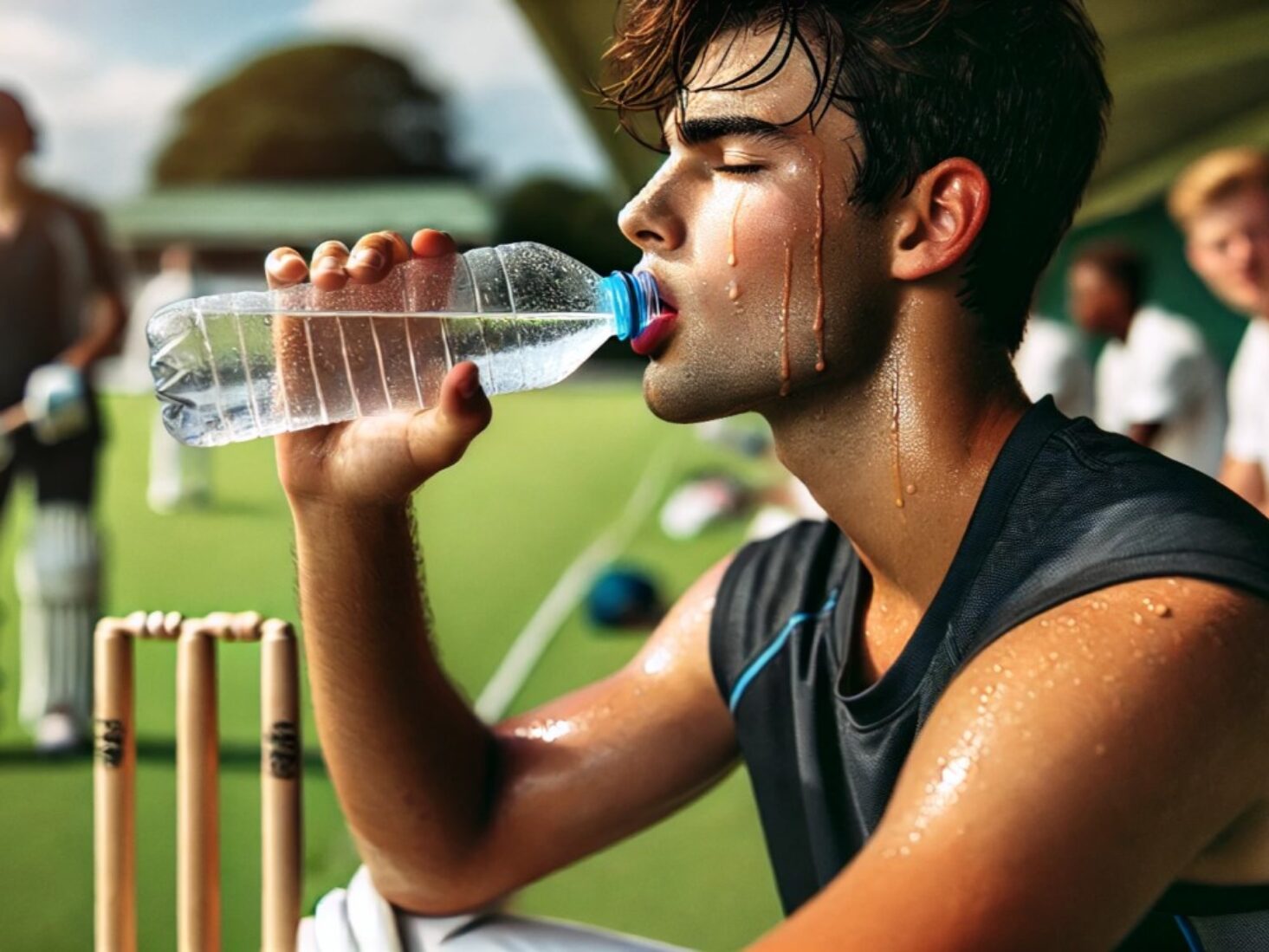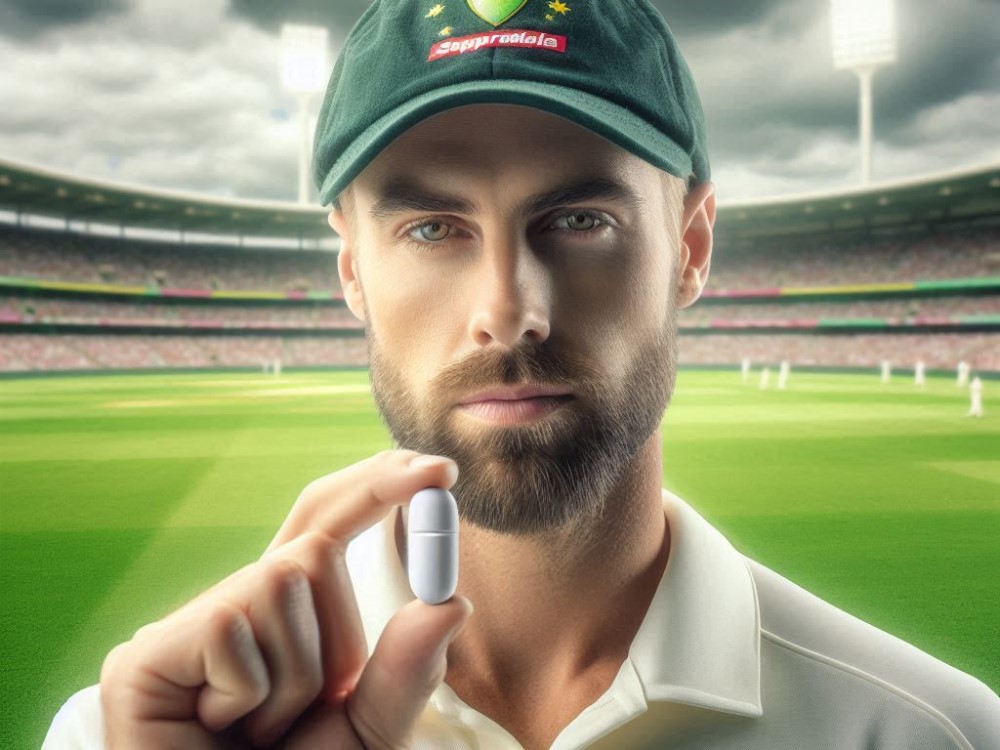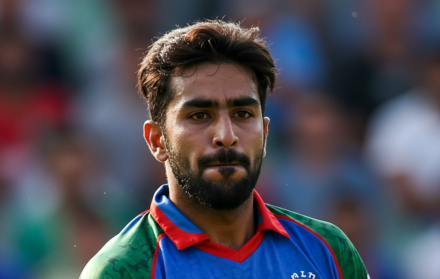
Nutrition and Hydration for Young Cricketers
Ensuring proper nutrition and hydration for young cricketers is crucial for their performance and overall development. A balanced diet not only fuels their energy levels but also supports their growth and helps them develop the necessary skills for the game. As cricket is a demanding sport, young players need to be equipped with the right nutrients to sustain their energy, enhance their focus, and build their physical endurance. The role of nutrition and hydration for young cricketers goes beyond just providing them with energy; it plays a significant part in their overall development as athletes.
A strong foundation in cricket starts with understanding the benefits of playing cricket for children, which includes not only physical fitness but also mental and social growth. By consuming the right nutrients, young players can improve their performance on the field, build muscle strength, and enhance their endurance levels, all of which are essential in the fast-paced game of cricket. Proper hydration is equally important, as it helps maintain focus, especially during long matches, and prevents fatigue.
In addition to physical benefits, a well-rounded diet contributes to building confidence and self-esteem through cricket. When young cricketers feel physically strong and energized, they are more likely to approach the game with confidence and a positive mindset. This psychological edge is crucial for their development, allowing them to push through challenges and excel in their performances.
To further enhance their cricketing abilities, young players can benefit from incorporating cricket skills and drills into their training routines. These drills, combined with proper nutrition, help in the development of key skills such as hand-eye coordination, which is vital in cricket. By consuming the right nutrients and staying hydrated, young cricketers can improve their reaction times and overall coordination, giving them an advantage on the field.
Equipping young cricketers with suitable cricket equipment also plays a significant role in their development. The right equipment, combined with a balanced diet, ensures that young players are not only physically prepared but also mentally equipped to handle the challenges of the game. Proper nutrition supports the mental aspects of cricket, helping young players maintain focus, develop strategies, and stay calm under pressure.
Finally, it is essential to address the mental aspects of cricket for young players. A nutritious diet and adequate hydration contribute to mental clarity and emotional stability, enabling young cricketers to make quick decisions, stay motivated, and enjoy the game to its fullest.
Proper nutrition and hydration are fundamental to the growth and success of young cricketers. By understanding the importance of a balanced diet, young athletes can enhance their physical and mental abilities, ensuring that they are well-prepared for the demands of the game.
The Importance of Balanced Nutrition for Young Cricketers

Balanced nutrition is crucial for young cricketers, as it directly impacts their performance, energy levels, and overall development. Cricket is a demanding sport that requires a combination of strength, endurance, and agility, making it essential for young athletes to consume a diet that provides all the necessary nutrients. A well-balanced diet not only fuels their training sessions and matches but also supports their growth, recovery, and long-term health.
For young cricketers, a diet rich in carbohydrates, proteins, fats, vitamins, and minerals is essential. Carbohydrates serve as the primary energy source, helping to maintain stamina during long matches and intensive training sessions. Foods such as whole grains, fruits, and vegetables are excellent sources of complex carbohydrates, providing sustained energy release that keeps young cricketers performing at their best throughout the day.
Protein is another critical component of a young cricketer’s diet. It plays a vital role in muscle repair and growth, which is particularly important after strenuous physical activity. Including lean meats, fish, eggs, dairy products, legumes, and nuts in their diet helps young athletes maintain and build muscle mass, supporting their overall physical development and recovery.
Healthy fats should also be included in the diet, as they provide a concentrated source of energy and support the absorption of fat-soluble vitamins. Sources of healthy fats such as avocados, nuts, seeds, and oily fish contribute to brain health, hormone production, and overall well-being. It’s important for young cricketers to include these fats in moderation to support their energy needs and long-term health.
In addition to macronutrients, micronutrients like vitamins and minerals are vital for young cricketers. Vitamins such as A, C, and E, along with minerals like calcium, iron, and zinc, play critical roles in immune function, bone health, and energy production. A varied diet rich in fruits, vegetables, and dairy products ensures that young cricketers receive these essential nutrients, helping them to stay healthy, recover quickly, and perform at their best.
A balanced diet tailored to the demands of cricket ensures that young athletes have the energy, strength, and endurance needed to excel on the field. By focusing on the right mix of carbohydrates, proteins, fats, vitamins, and minerals, young cricketers can achieve optimal performance, growth, and recovery, setting a strong foundation for their athletic careers.
Pre-Match Nutrition: Fueling Young Cricketers for Peak Performance
Pre-match nutrition is critical for young cricketers, as it provides the energy and nutrients needed to perform at their best during the game. The right foods, eaten at the right times, can make a significant difference in energy levels, concentration, and endurance, ensuring that young athletes are fully prepared to meet the physical demands of cricket.
One of the most important aspects of pre-match nutrition is timing. It’s essential for young cricketers to eat a meal rich in carbohydrates, moderate in protein, and low in fats about 3 to 4 hours before the game. This meal should provide sustained energy without causing digestive discomfort, ensuring that players are fueled without feeling sluggish or heavy. Ideal pre-match meals include options like grilled chicken with brown rice and vegetables, whole-grain pasta with tomato sauce and lean protein, or a turkey sandwich on whole-grain bread with a side of fruit.
In addition to the main pre-match meal, a light snack about 30 to 60 minutes before the game can help top up energy levels. This snack should be easy to digest and rich in quick-releasing carbohydrates to provide an immediate energy boost. Suitable options include a banana, a small handful of dried fruit, a granola bar, or a slice of toast with honey. These snacks help maintain blood sugar levels, preventing energy dips during the match.
Hydration is another crucial aspect of pre-match preparation. Young cricketers should begin hydrating well before the match starts, drinking plenty of water throughout the day. About 2 to 3 hours before the game, they should consume 500 to 600 ml of water to ensure they are fully hydrated. Sipping another 200 to 300 ml of water about 20 to 30 minutes before the match helps maintain hydration levels, ensuring that players start the game in optimal condition.
It’s also important for young cricketers to avoid certain foods before a match. High-fat and high-fiber foods can cause digestive issues and should be limited in the pre-match meal. Additionally, sugary foods and drinks can lead to energy crashes, negatively impacting performance on the field.
By focusing on proper pre-match nutrition and hydration, young cricketers can fuel their bodies for peak performance. A well-planned pre-match meal, combined with strategic snacking and adequate hydration, helps ensure that players have the energy, focus, and endurance needed to excel in their game.
Hydration Strategies for Young Cricketers: Staying Energized and Focused

Proper hydration is essential for young cricketers, as it directly affects their performance, endurance, and overall well-being. Cricket matches and training sessions can be long and physically demanding, especially in hot weather, making it crucial for young athletes to maintain optimal hydration levels. Staying properly hydrated helps prevent fatigue, cramps, and heat-related illnesses, allowing young cricketers to stay energized and focused throughout the game.
One of the most important strategies for maintaining hydration is to start well before the match or training session begins. Young cricketers should drink water consistently throughout the day, aiming to consume at least 8 to 10 cups of water daily. In the hours leading up to the game, they should increase their fluid intake, drinking about 500 to 600 ml of water 2 to 3 hours before the start. This helps ensure that they begin the match well-hydrated.
During the game, it’s important for young cricketers to continue hydrating, especially during breaks and intervals. Sipping water or a sports drink every 15 to 20 minutes can help maintain hydration levels and replenish lost fluids. Sports drinks can be particularly beneficial during intense matches or in hot conditions, as they contain electrolytes that help replace the sodium, potassium, and other minerals lost through sweat. However, it’s important to choose sports drinks that are low in sugar to avoid energy crashes.
Post-match hydration is equally important for recovery. After the game, young cricketers should continue to drink water to rehydrate and support the body’s recovery process. Consuming a sports drink or water with a small snack can help replenish glycogen stores and restore electrolyte balance, aiding in muscle recovery and reducing fatigue.
It’s also important to monitor the color of urine as an indicator of hydration status. Pale yellow urine typically indicates good hydration, while darker urine may suggest dehydration. Educating young cricketers on this simple self-check can help them manage their hydration more effectively.
In hot or humid conditions, the risk of dehydration is higher, so it’s important for young cricketers to be even more vigilant about their fluid intake. Coaches and parents should encourage regular water breaks and ensure that plenty of fluids are available throughout the game.
Effective hydration strategies are key to maintaining energy, focus, and overall performance in young cricketers. By staying properly hydrated before, during, and after the game, young athletes can reduce the risk of dehydration, prevent fatigue, and support optimal physical and mental performance on the field.
Post-Match Recovery Nutrition: Supporting Growth and Performance
Post-match recovery nutrition is vital for young cricketers, as it helps their bodies recover from the physical demands of the game, rebuild muscle, and restore energy levels. Proper recovery nutrition not only enhances performance in subsequent training sessions and matches but also supports overall growth and development, which is particularly important for young athletes.
The key to effective post-match recovery nutrition is to refuel the body with the right nutrients as soon as possible after the game. The ideal post-match meal or snack should include a combination of carbohydrates and protein to replenish glycogen stores and repair muscle tissue. Consuming these nutrients within 30 minutes to 2 hours after the game is crucial, as this is when the body is most efficient at absorbing and utilizing them.
Carbohydrates play a critical role in replenishing the glycogen stores depleted during the match. Foods such as whole grains, fruits, and starchy vegetables are excellent sources of complex carbohydrates that provide the necessary energy for recovery. Including these foods in the post-match meal helps restore energy levels, preparing young cricketers for their next training session or game.
Protein is equally important in the recovery process, as it supports muscle repair and growth. Young cricketers should aim to consume high-quality protein sources, such as lean meats, fish, eggs, dairy products, or plant-based options like beans and lentils. A combination of protein and carbohydrates, such as a chicken and vegetable stir-fry with rice, a turkey sandwich, or a smoothie with fruit and yogurt, makes for an effective recovery meal or snack.
Hydration is also a crucial component of post-match recovery. After the game, young cricketers should continue to drink water or a sports drink to rehydrate and restore electrolyte balance. Consuming fluids alongside their recovery meal helps support digestion and nutrient absorption, further aiding the recovery process.
In addition to carbohydrates, protein, and fluids, young cricketers should also focus on incorporating foods rich in antioxidants, vitamins, and minerals into their post-match meals. These nutrients help reduce inflammation, support the immune system, and promote overall recovery. Berries, leafy greens, nuts, seeds, and fatty fish like salmon are excellent choices that provide these essential nutrients.
Post-match recovery nutrition is essential for supporting the physical and mental well-being of young cricketers. By refueling with the right combination of carbohydrates, protein, and fluids, young athletes can enhance their recovery, improve performance, and support their overall growth and development. Prioritizing recovery nutrition helps ensure that young cricketers remain healthy, strong, and ready for the next challenge.
Tailoring Nutrition for Different Phases of Training in Cricket

Tailoring nutrition to the different phases of training is essential for optimizing performance, recovery, and overall development in young cricketers. Cricket training often involves periods of intense practice, conditioning, and match play, each requiring specific nutritional strategies to meet the varying demands on the body. By adjusting their diet according to the training phase, young cricketers can ensure they are adequately fueled and supported throughout their athletic development.
During periods of high-intensity training or conditioning, young cricketers need to focus on increasing their caloric intake to match the increased energy expenditure. This phase often includes rigorous physical activity, such as sprinting drills, strength training, and long practice sessions, which can significantly deplete energy stores. A diet rich in complex carbohydrates, such as whole grains, sweet potatoes, and legumes, provides the sustained energy needed to power through these demanding sessions. Additionally, increasing protein intake is crucial during this phase to support muscle repair and growth. Lean meats, fish, eggs, and plant-based proteins should be included in meals and snacks to help meet these increased nutritional needs.
Hydration is also particularly important during high-intensity training phases, as young cricketers are likely to lose more fluids through sweat. Regular water intake throughout the day, combined with electrolyte-rich sports drinks during and after training, helps maintain hydration levels and prevent fatigue.
In contrast, during lower-intensity training phases or rest periods, the focus should shift to maintaining a balanced diet that supports recovery and overall health. While carbohydrate intake may be slightly reduced during these phases, it’s still important to consume enough to meet the body’s energy needs. Emphasizing nutrient-dense foods, such as fruits, vegetables, whole grains, and lean proteins, ensures that young cricketers receive the necessary vitamins and minerals for recovery and immune support.
Protein remains important during lower-intensity phases, but the emphasis may be on maintaining rather than building muscle mass. Including moderate portions of protein-rich foods in meals and snacks helps support muscle recovery and maintain lean body mass. Healthy fats, such as those found in avocados, nuts, seeds, and olive oil, should also be included to support overall health and provide a concentrated source of energy.
During the competitive season, when matches are frequent, young cricketers should focus on maintaining a diet that supports sustained energy and quick recovery. Carbohydrate-rich meals before matches help ensure glycogen stores are fully stocked, while post-match meals should prioritize both carbohydrates and proteins to facilitate recovery. Hydration strategies should be consistent, with an emphasis on drinking water regularly and using sports drinks during matches to replace lost electrolytes.
Tailoring nutrition to the different phases of cricket training is key to optimizing performance, recovery, and overall development in young cricketers. By adjusting their diet according to the demands of each training phase, young athletes can ensure they are adequately fueled, hydrated, and supported, allowing them to reach their full potential on the field.
The Role of Supplements in Supporting Young Cricketers’ Nutrition
While a balanced diet is the foundation of good nutrition for young cricketers, supplements can sometimes play a role in supporting their dietary needs, particularly when specific nutrients are difficult to obtain through food alone. However, it’s important to approach supplementation with caution, ensuring that any supplements used are appropriate for the athlete’s age, training level, and specific nutritional requirements. Consulting with a healthcare professional or sports nutritionist is essential before introducing any supplements into a young cricketer’s diet.
One of the most commonly used supplements among athletes, including young cricketers, is protein powder. Protein supplements can be useful for young athletes who struggle to meet their protein needs through whole foods, particularly during periods of intense training or growth. Whey protein, a popular choice, is easily digestible and provides a complete profile of essential amino acids, making it an effective option for supporting muscle repair and growth. However, it’s important to remember that whole food sources of protein, such as lean meats, eggs, and dairy, should always be prioritized.
Creatine is another supplement that may be considered for young cricketers, particularly those involved in high-intensity training or strength conditioning. Creatine helps to increase the body’s production of ATP, the primary energy source for short bursts of intense activity, such as sprinting or explosive movements in cricket. While research suggests that creatine can be effective in enhancing performance, it’s crucial to ensure that young athletes use it under professional guidance and that their overall diet is sufficient to support its use.
Omega-3 fatty acids, commonly found in fish oil supplements, are beneficial for reducing inflammation and supporting overall cardiovascular health. For young cricketers who may not consume enough fatty fish in their diet, an omega-3 supplement can help fill this gap. Omega-3s also support cognitive function, which can be beneficial for maintaining focus and concentration during long matches.
Multivitamins can be considered for young cricketers who have difficulty obtaining all the necessary vitamins and minerals through their diet, particularly during periods of increased physical demand. A multivitamin can help ensure that young athletes receive adequate amounts of essential nutrients such as vitamin D, calcium, and iron, all of which play vital roles in bone health, energy production, and immune function.
However, it’s important to note that supplements should never replace a balanced diet. Whole foods provide a wide range of nutrients that work synergistically to support overall health and performance, something that isolated supplements cannot fully replicate. Additionally, the safety and efficacy of supplements should always be carefully considered, particularly for young athletes whose bodies are still developing.
While supplements can support the nutritional needs of young cricketers in certain circumstances, they should be used with caution and under professional guidance. A balanced diet rich in whole foods should always be the primary focus, with supplements serving as an adjunct to address specific nutritional gaps or needs. By prioritizing proper nutrition and using supplements wisely, young cricketers can optimize their performance, recovery, and long-term health.
The Importance of Nutrition and Hydration for Young Cricketers: Fueling Success on and off the Field

Proper nutrition and hydration are vital components of a young cricketer’s development and performance. As the demands of the sport increase with age and competition level, ensuring that young athletes are well-nourished and adequately hydrated is essential for their overall health, performance, and long-term success in the game.
Cricket is a sport that requires a unique blend of physical endurance, mental focus, and technical skill. To meet these demands, young cricketers need a balanced diet that provides the right mix of macronutrients—carbohydrates, proteins, and fats—as well as essential vitamins and minerals. Carbohydrates serve as the primary energy source, fueling both the high-intensity bursts of activity and the sustained efforts needed throughout a match. Proteins are crucial for muscle repair and growth, helping young cricketers recover after intense training sessions and matches. Healthy fats, while often overlooked, play a role in maintaining energy levels and supporting overall health.
In addition to macronutrients, micronutrients like vitamins and minerals are indispensable for young cricketers. Calcium and vitamin D are particularly important for bone health, which is critical during the growth years. Iron supports oxygen transport in the blood, directly impacting endurance and stamina. A diet rich in fruits, vegetables, lean proteins, and whole grains will ensure that young cricketers receive the full spectrum of nutrients needed to stay healthy and perform at their best.
Hydration is equally important, particularly given the long durations of cricket matches and the potential for extreme weather conditions. Dehydration can lead to decreased concentration, reduced physical performance, and an increased risk of injury. Young cricketers should be encouraged to drink water regularly throughout the day, not just during training or matches. In hot or humid conditions, electrolyte drinks may be necessary to replace the salts lost through sweat. Monitoring hydration levels, such as by checking urine color, can be a simple yet effective way to ensure that young athletes are staying properly hydrated.
The timing of meals and hydration also plays a critical role in performance. A balanced meal consumed a few hours before a match or training session provides the necessary fuel for sustained energy levels. During the match, light snacks such as fruit or energy bars can help maintain blood sugar levels and prevent fatigue. Post-match, a meal rich in proteins and carbohydrates supports muscle recovery and replenishes glycogen stores, helping young cricketers bounce back quickly for the next day’s activities.
Educating young cricketers about the importance of nutrition and hydration is key to instilling healthy habits that will serve them well throughout their sporting careers and beyond. Parents, coaches, and nutritionists all have a role to play in guiding young athletes towards making informed dietary choices that support their performance and well-being. Encouraging a balanced approach to eating, avoiding fad diets, and understanding the importance of hydration will help young cricketers develop a positive relationship with food and drink that will enhance their performance on the field.
Nutrition and hydration are fundamental to the success and development of young cricketers. By providing the right fuel for their bodies and minds, young athletes can optimize their performance, reduce the risk of injury, and improve their overall health. As the demands of the sport increase, the importance of proper nutrition and hydration becomes even more critical. Ensuring that young cricketers are well-equipped with the knowledge and habits necessary to meet these demands will not only enhance their performance but also lay the foundation for a long, healthy, and successful cricketing career. By prioritizing these aspects of their development, we can help young cricketers reach their full potential and enjoy the many benefits that come from a healthy, balanced approach to nutrition and hydration.





